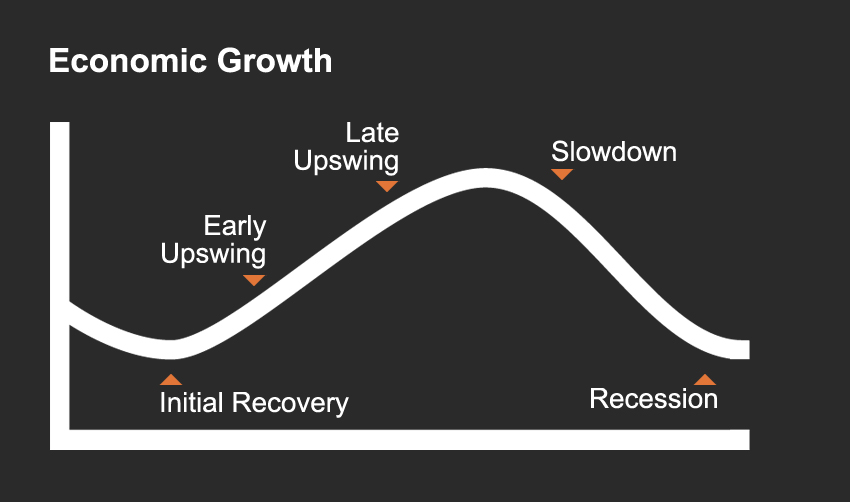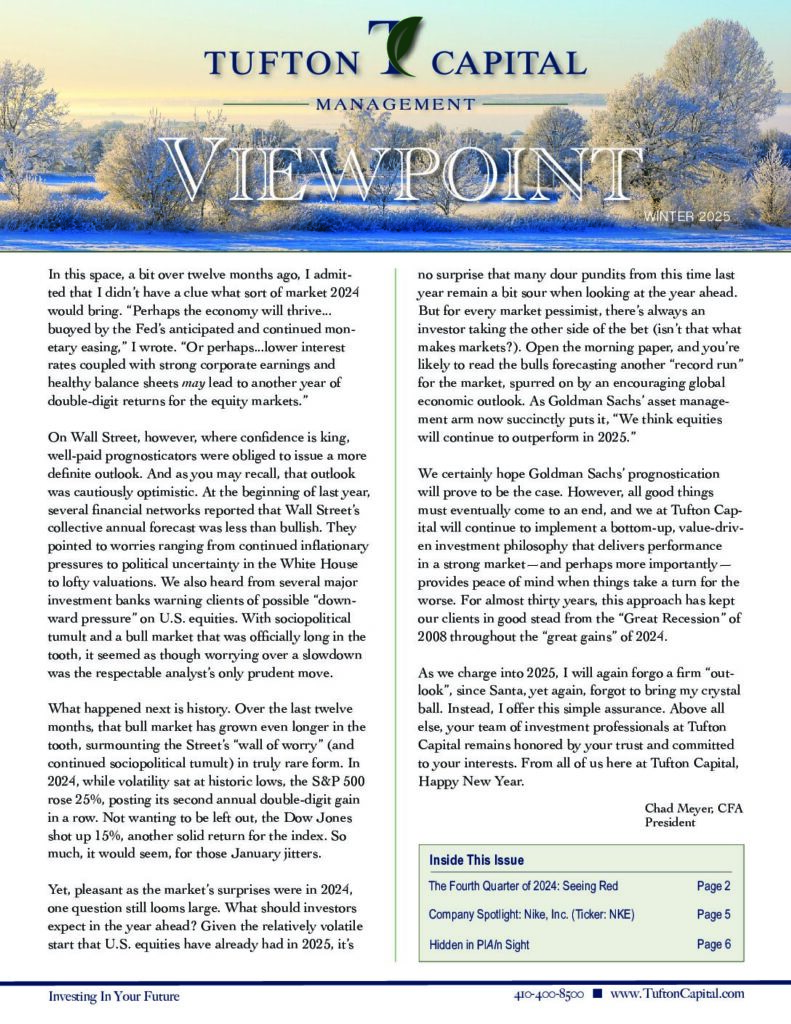The Weekly View (4/3/17)
What’s On Our Minds:
Market cycles represent fluctuations in stock, bond and investment markets. These cycles are closely tied with large-scale economic business cycles and have an important impact on investment, financial, cash flow and personal planning.
Market Cycles Versus Business Cycles
Market cycles and business cycles may sound the same, and are indeed very similar, but are slightly different. A market cycle typically refers to different phases in the stock market, whereas the business cycle is an underlying fundamental change in economic business activity as measured by real Gross Domestic Product (GDP) percent change (an important measure of the level of business activity in the economy), unemployment rates, manufacturing data and more.
The difference can be more clearly seen in the terminology; market cycles are defined by bull and bear markets, while business cycles are defined by economic growth and recession. A typical definition for bear market is a downturn of at least 20 percent over longer than a two-month period in either the S&P 500 for Dow Jones Industrial Average (DJIA). This is not to be confused with a correction, which is a short-term downtrend in stock markets. The length of market cycles also is important to note. If market analysts believe that stock appreciation will be a short-term trend, then it is referred to as cyclical. Long-term trends longer than a few months in duration are referred to as secular.
Business Cycle Stages
Not all phases of the business cycle can be easily separated, and the stages of the business cycle may only be able to be identified in retrospect. Still, it is useful to define the five stages to business cycles, as follows:
- Initial recovery: usually a short period in which the economy comes out of a recession. Unemployment remains high and consumer confidence will most likely be suppressed. At this point in the business cycle, open market activities to reduce interest rates or governmental policies, such as stimulus efforts, are enacted.
- Early upswing: confidence recovers and the economy gains some momentum. This is a very healthy period in time, where productive capacity is still able to keep pace with growing demand and there is no sign of significantly higher inflation.
- Late upswing: although confidence is high and unemployment is low, inflation is starting to pick up and offsets nominal economic growth.
- Slowdown: as a result of rising interest rates, the economy starts to slow. Investors reduce risk and shift stock allocations to bonds. Although there is a slowdown in activity, inflation is still likely to rise during a slowdown.
- Recession: typically defined as two consecutive quarterly declines in GDP; consumer spending contracts. Once the recession is confirmed, central banks start to cautiously increase the supply of money to spur growth. Recessions may be highlighted by bankruptcies, fraud or a financial crisis.
Although forecasting upcoming business cycles is particularly challenging, it helps to know how these cycles tie into market cycles and, ultimately, the performance of your investment portfolio.
Last Week’s Highlights:
Stocks rebounded last week as both large and small caps made a move higher. The S&P 500 was up .8% and the Dow Jones was up .32%. Over the past two weeks we’ve seen some volatility return to equity markets that we haven’t seen in some time. Investors were spooked after Trump failed to repeal and replace Obamacare but last week’s rally shows that investors remain confident that he will be able to deliver on his promises of sweeping tax reform, regulatory relief and infrastructure spending.
Looking Ahead:
There’s a heap of economic data coming across the wire this week including vehicle sales on Monday, the Federal Reserve’s March meeting minutes on Wednesday, and the March Jobs report on Friday. Investors will be looking at these numbers closely as many believe equity markets have been running hot and these numbers will either confirm or refute those beliefs.
As always, Tufton portfolio managers remain focused on managing accounts for the long term as opposed to getting caught up in pundits’ hype.





